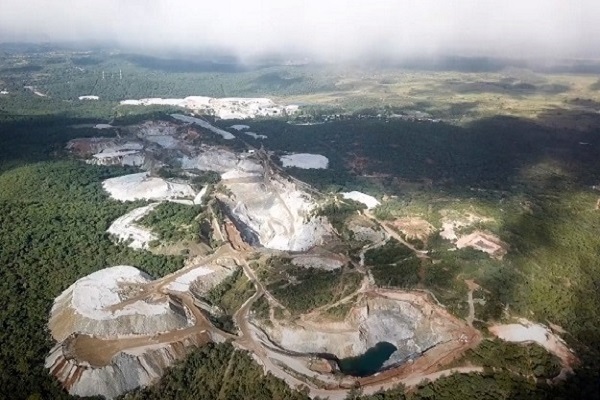Zimbabwe Curbs Export of Raw Lithium Ores
On 20 December 2022, the Ministry of Mines and Mining Development of Zimbabwe released a circular under the Base Minerals Export Control Act to “ensure the vision of the President to see the country becoming an upper-middle income economy is realized.”
According to estimates, Zimbabwe is losing billions of dollars annually due to mineral smuggling and externalization. In 2015, it is estimated that Zimbabwe lost about USD 12 billion through illegal mining and trade of minerals. Such amount could have gone a long way towards paying back its foreign debt amounting to USD 13.7 billion.
Currently, gold is the most smuggled mineral with the bulk going to South Africa and the United Arab Emirates. However, with the emphasis on the fight against #ClimateChange, lithium has started to attract great interest.
Lithium carbonate spot price has hit a record USD 84,000 per tonne in November 2022, representing nearly a 200% price increase over one year period. Lithium is a key ingredient in batteries for Electric Vehicles (#EV) and smartphones due to its high energy density and rechargeability.
Commenting the circular, Minister Winston Chitando declared that: “No lithium-bearing ores, or unbeneficiated lithium whatsoever, shall be exported from Zimbabwe to another country except under the written permit of the minister.” However, Deputy Minster Polite Kambamura clarified that at this stage, investors building processing plants for Local Value Addition (#LVA) will be able to export concentrates.
Over the past few years, Chinese companies have invested nearly one billion dollars into #lithium mining in Zimbabwe. Zhejiang Huayou Cobalt, Tsingshan Group, Sinomine Resource and Chengxin Lithium Group have acquired lithium mines in Zimbabwe and are at various stages of development with plans to set up processing plants.
Rio Tinto predicts that 50% of new car sales will be EV as early as 2030. It is currently scouting the globe for lithium resources in view that rising demand for EV will cause “lithium prices to stay high over a long period of time.” Premier African Minerals, an LSE-listed company, plans to start shipping spodumene concentrate from Zimbabwe to China as from March 2023 after signing an offtake deal with Suzhou Ultra Clean Technology.
“If we continue exporting raw lithium we will go nowhere. We want to see lithium batteries being developed in the country, We have done this in good faith for the growth of industry.”
Zimbabwe Minister of Mine and Mining Development, Winston Chitando
Zimbabwe is endowed with the largest lithium reserves in Africa and can meet 20% of the global demand for lithium. The Bikita mine has reserves of 11 million tonnes of lithium ore and the Arcadia mine is expected to produce 2.5 million tonnes of lithium ore annually. At current price, this would equate to nearly USD 3 billion in export revenues every year.
Mineral exports account for 60% of export earnings in Zimbabwe and contributes to 16% of its GDP. The aim of the new regulation is to promote LVA and structurally transform the industry to move up the value chain so that the contribution to the local economy is even higher. The ultimate goal of the Zimbabwean government is to build up a vertically integrated ecosystem around lithium and establish the manufacturing of the lithium batteries locally.

